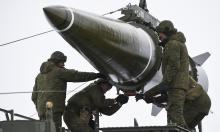Kaliningrad...or Konigsberg?
No independence movement but locals want looser control by Moscow and stronger association with EU
What is to become of the enclave of Kaliningrad, Russian Federation territory cut off from Mother Russia and sandwiched between Lithuania and Poland, soon to become an island within the European Union?

Moscow insists upon the right to visa-free transit from the enclave of Kaliningrad to mainland Russia and back, while the European Union wants there to be free visas, whereby the residents are not penalized by having to pay to reach what is after all their own country, but to impose at the same time a series of checks on the territory because it fears it could become a high-crime area, a smuggling centre with a high AIDS rate within the European Union itself.
What do the residents want? According to PRAVDA.Ru contacts within the territory, there are a few hardliners who would favor independence from Moscow, setting up a new state within the European Union. This stance, however, does not reflect the general line of thinking within Kaliningrad, which favors looser control by Moscow with more association with the EU but not total integration and certainly not independence.
The looser control by Moscow is seen as a means of at least gaining some advantages from being an island on the EU territory. Having some sort of visa control, the EU in general, and Poland and Lithuania in particular, would no longer regard the region as a source of instability and the atmosphere would be created for a spirit of strategic partnerships to be signed, favoring the Russians in the enclave and Mother Russia herself at the same time.
Were the region to allow the EU to exert some sort of control at the airports and seaports, in time, the visas would cease to be necessary for those leaving the enclave for Russia and would only be necessary for incoming persons, consider the moderates living in the territory.
For this reason, continuing the line of thought expressed by these moderates, Russians living in Kaliningrad would eventually have the right to travel freely inside the EU, creating the fist step for all Russians to be integrated.
Those who support the change of name from Kaliningrad to Konigsberg, its former name, quote the change from Leningrad to St. Petersburg. However, the move to change the name is evidence of the anti-Moscow sentiment in this part of Russia. Most people in Kaliningrad would agree that Moscow does not understand the feelings of the majority of people within this enclave, inhabited by ethnic Russians but with all the possibilities and infra-structures to become a separate state.
Timofei BYELO
PRAVDA.Ru
Subscribe to Pravda.Ru Telegram channel, Facebook, RSS!





